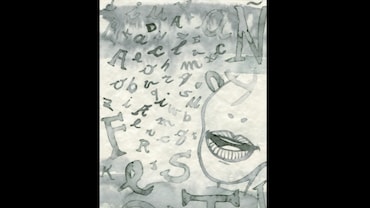- HOME
- /
- Conversations
- /
- In My Opinion
- /
A Doctor's Duty In Today's World
Compassion, courtesy and information sharing are some of the key attributes of a physician, even in a tech-intensive world
 Photo: Shutterstock
Photo: Shutterstock
‘To cure sometimes, to relieve often and comfort always’ is an aphorism of uncertain attribution by Hippocrates. It has been quoted widely, with variations, since the 15th century. This description of a physician’s mandate is valid even in this era of technology intensive medical care, where pictures of beeping screens, organ scans and ‘miracle’ pills have replaced the kindly doctor everywhere.Technology supports but cannot substitute a competent and compassionate health-care provider. Good clinical assessment is essential for interpreting a diagnostic-test result or in choosing between treatment options. That is because context matters in analyzing and applying evidence from research to individual patients. Proven treatments may still need consideration for patients who have contraindications or are non-responders. Tests can yield false positive and false negative results. A well-proven mathematical model called Bayes’ Theorem explains that a post-test probability is the product of the test result and pre-test (prior) probability, and not of the test result alone. Clinical acumen comes into play while estimating prior probability.
Knowledge of quantitative and qualitative research methods is essential, to conduct, analyze or apply products of research. A good clinician should be able to assess scientific publications—both for valid research methodology and applicability of the result to a specific patient. Even as artificial intelligence is racing to develop diagnostic and treatment algorithms, their application in specific situations will be context-dependent, requiring the lens of human intelligence to be interposed. For this, a doctor has to be a lifelong learner and keen observer.
Beyond scientific astuteness, a good doctor must also be an ethical and empathetic caregiver. Patients and their families seeking care are vulnerable—as the a symmetry of domain knowledge makes them dependent on the doctor’s decisions. Information sharing, to enable patients and families to participate in some key decisions, is a doctor’s duty. A good physician must possess the attributes of care, concern, compassion and courtesy, while dealing with patients or their families.Communication skills, which enable information sharing and providing comfort, are essential for a doctor, who must maintain human contact and not hide behind a machine.
Health care, in most settings, is delivered by teams rather than as a solo effort. Fellow doctors, nurses, technicians and other allied health professionals are involved in collectively delivering care in a hospital setting. In primary health care, non-physician health-care providers are an important part of the team. Dismantling false hierarchies and building congenial working relations among team members is an essential requirement, for increasing efficient delivery and quality of care.

A doctor is a teacher too. Not only for medical students, but also laypersons, family caregivers, the general public, media and even policymakers. Demystification of knowledge, through jargon-free communication, boosts the ability of the whole community to protect, preserve and promote health at individual and population levels. As fake news floods sloppy social media, this role becomes even more important.
Since many of the determinants of health are social, economic, environmental and commercial, a public spirited doctor must also argue for policies that enable health and oppose those that erode health. Tobacco, junk food and polluting industries are obvious examples, but climate change and economic inequities that disproportionately heap illness on disadvantaged people are also health issues. As the 19th-century pathologist, anthropologist and statesman Rudolf Virchow said, “Physicians are natural attorneys of the poor.”
Universal health coverage is a health system issue that is addressed through political priorities and financial commitments. Who else can make the case better than a doctor who sees people being denied treatment or driven to poverty by costly care? In my view, a health professional has to perform many roles: alleviator, caregiver, teacher, elucidator, researcher, advocate, policy enabler and—if need be—agitator, as a concerned citizen for essential reforms in health and social systems.
Health is the best summative indicator of sustainable global development. A doctor must be both the proponent and propellant of health at the individual, community, national and global levels. I have tried to live up to that ideal in my life. I hope young doctors will do so as well, with greater vigour and success.






